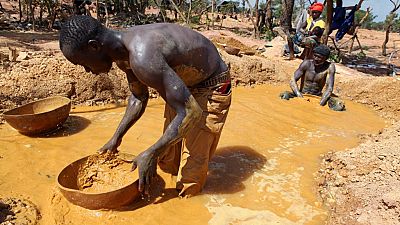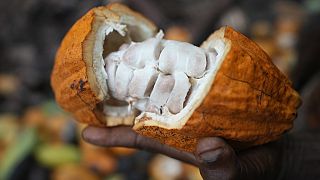Mali
Mali has passed a new mining code allowing the state to take up to 30 percent stakes in new mineral projects and collect more revenues from the vital industry.
Junta leader Assimi Goita signed the code into law on Monday (Aug. 28), his office announced on social media Tuesday (Aug. 29).
Mali is one of Africa's leading gold producers.
It is also boasts manganese and lithium -- two minerals key to the global energy transition -- though these have not been extensively explored.
Mali produced 72.2 tonnes of gold in 2022, including six tonnes by artisanal gold panners, then-mines minister, Lamine Seydou Traore, said in March.
Gold accounts for 25 percent of the national budget, 75 percent of export earnings and 10 percent of GDP, he added.
Mali's mining sector is dominated by foreign companies, including the Canadian firms Barrick Gold and B2Gold, Australia's Resolute Mining and the British Hummingbird Resources.
They have continued to operate despite political instability and an expanding jihadist insurgency.
Mali's junta, which seized power in 2020, has made sovereignty a key priority.
Boosting the national budget
The mining code reform could boost the national budget by 500 billion CFA francs ($820 million), economy minister Alousseni Sanou said this month.
The new mines minister, Amadou Keita, said the state hoped the mining industry would eventually contribute to between 15 and 20 percent of GDP.
The reform allows the government to hold up to 10 percent equity in new projects with the option to buy an additional 20 percent during the first two years of commercial production.
And it allows the Malian private sector to hold up to five percent.
The new code also removes tax exemptions for mining companies during operations.
According to the economy minister, exemptions on petroleum products and equipment represent about 60 billion CFA francs a year.
The junta had for months championed the proposed reform, pledging to make "gold shine for Malians".
"Mali's demand for higher stakes in mining projects... reflects a wider trend across the continent where resource-rich countries, impacted by the knock-on effects of global shocks, aim to increase their control over the mining sector," Mucahid Durmaz, an analyst with Verisk Maplecroft, said in a note.
But, he added, the Malian government is "walking a tightrope" and must be "cautious not to scare away investors".













Go to video
Protesters gather in Ivory Coast, demand Thiam's return on electoral list
01:00
Ivory Coast: opposition candidates barred from electoral lists
01:00
Mali suspends artisanal gold mining activities during rainy season
Go to video
Ugandan lawmakers bring back military courts' ability to try civilians
Go to video
Chad detains former prime minister Masra after deadly clashes
02:13
Congo’s rebel-held coltan mines continue to pump ore for world’s tech